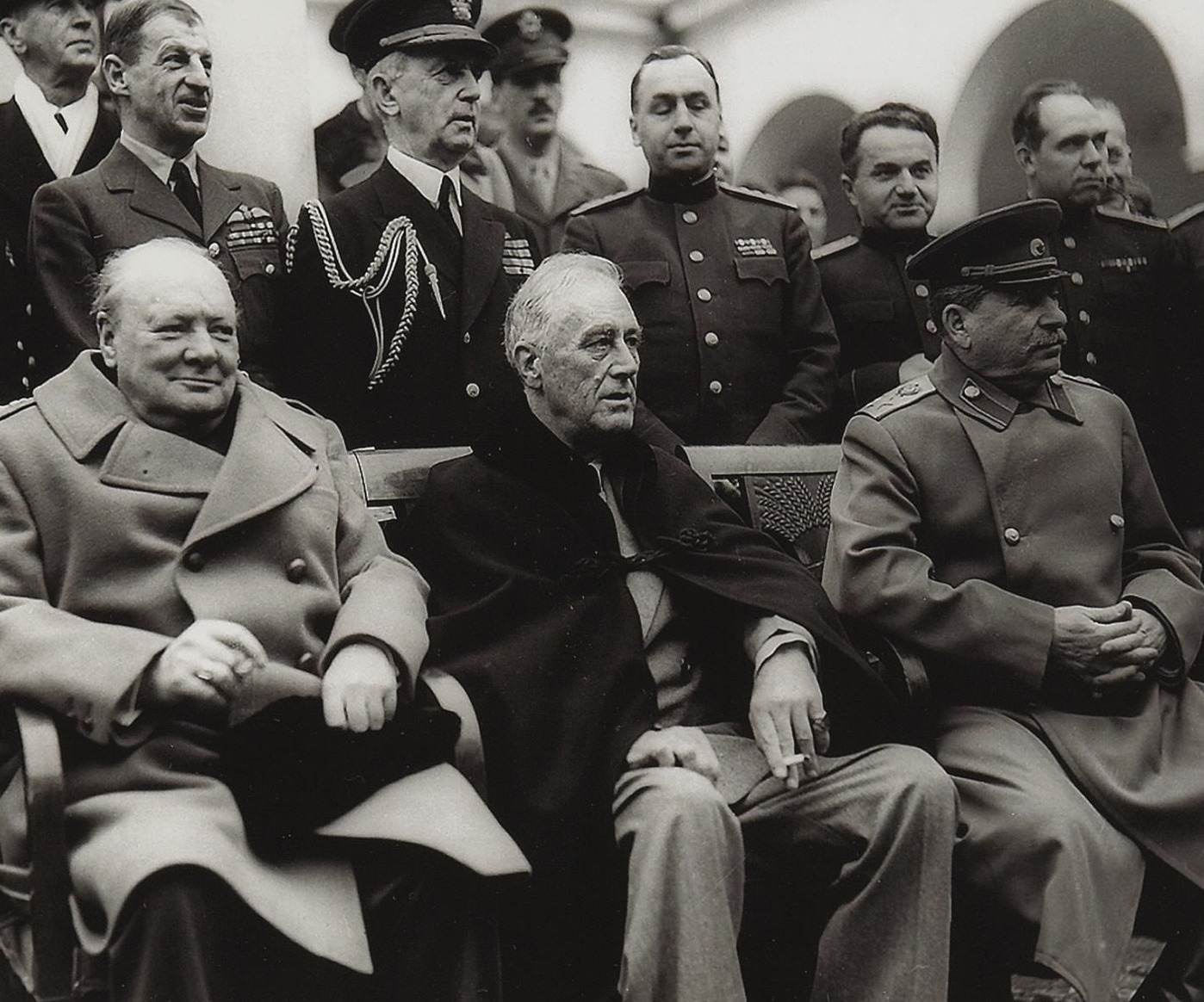
By Jim O’Neal
In February 1945, with the war in Europe winding down, the time had come for President Franklin Roosevelt, British Prime Minister Winston Churchill and Soviet Premier Joseph Stalin to decide the continent’s postwar fate. They agreed to meet at the Black Sea port of Yalta to discuss the plan.
Each man arrived on Feb. 4, along with an entourage of diplomats, military officers, soldiers and personal aides. Among those attending for Great Britain were Alexander Cadogan, under-secretary for foreign affairs, and Anthony Eden, Britain’s foreign secretary. Stalin was accompanied by his minister of foreign affairs, Vyacheslav Molotov, and the Soviet ambassador to the United States. Roosevelt brought Secretary of State Edward Stettinius and Averell Harriman, U.S. ambassador to the Soviet Union.
Roosevelt, recently elected to a fourth term, also brought along daughter Anna as his personal assistant, instead of wife Eleanor.
Aside from agreeing to the unconditional surrender of Germany, their agendas could not have been more different. While Stalin was firmly committed to expanding the USSR, Roosevelt and Churchill focused on the war in the Pacific. They hoped Stalin would declare war on Japan once Germany surrendered. Unbeknownst to Churchill, Roosevelt secretly secured the Soviet dictator’s cooperation by agreeing to grant the Soviets a sphere of influence in Manchuria once Japan capitulated.
The Allied leaders also discussed dividing Germany into zones of occupation. Each of the three nations, as well as France, would control one zone. Churchill and Roosevelt also agreed that all future governments in Eastern Europe would be “friendly” to the Soviet Union. Stalin agreed to allow free elections in each of the liberated Eastern European countries.
There was also a great deal of debate over Poland, but it was all a series of empty, almost laughable promises from Stalin in return for consenting to help with the establishment of the United Nations, which Roosevelt desperately wanted to create. He sincerely believed this new organization would step in when future conflicts arose and help countries settle their disputes peacefully.
The initial reaction to the Yalta agreements was one of celebration, especially in the United States. It appeared that the Western Allies and the Soviets would continue their wartime cooperation into the postwar period. Some historians continue to debate the impact of the conference. However, the facts are crystal clear. By spring, hopes of any continued cooperation had evaporated. After Yalta, Stalin quickly reneged on his promises concerning Eastern Europe, especially the agreement to allow free elections in countries liberated from Nazi control.
The USSR created an Iron Curtain and installed governments dominated by the Soviet Union. The one-time pseudo Allies found themselves on a more treacherous and dangerous path to another more ideologically driven one – the aptly named Cold War. Was FDR too tired and sick? He died two months after Yalta on April 12, 1945, at age 63. Was Churchill out of the loop or drinking heavily (or both)?
Seventy-plus years later, we are still consumed with Russian aggression in Crimea, Ukraine, Syria and the Baltics.
“Facts are stubborn things, and whatever may be our wishes, our inclinations, or the dictates of our passion, they cannot alter the state of facts and evidence,” said lawyer and future president John Adams in 1770, while defending British soldiers in the Boston Massacre trial.
 Intelligent Collector blogger JIM O’NEAL is an avid collector and history buff. He is president and CEO of Frito-Lay International [retired] and earlier served as chairman and CEO of PepsiCo Restaurants International [KFC Pizza Hut and Taco Bell].
Intelligent Collector blogger JIM O’NEAL is an avid collector and history buff. He is president and CEO of Frito-Lay International [retired] and earlier served as chairman and CEO of PepsiCo Restaurants International [KFC Pizza Hut and Taco Bell].
